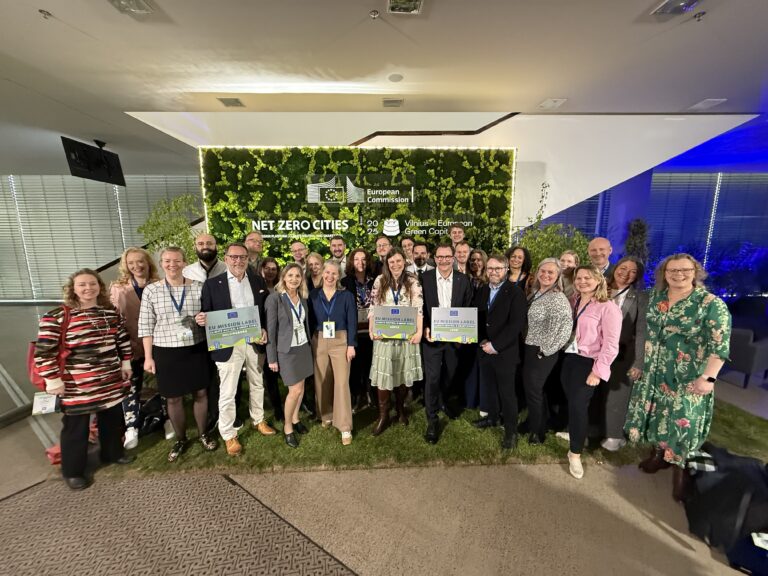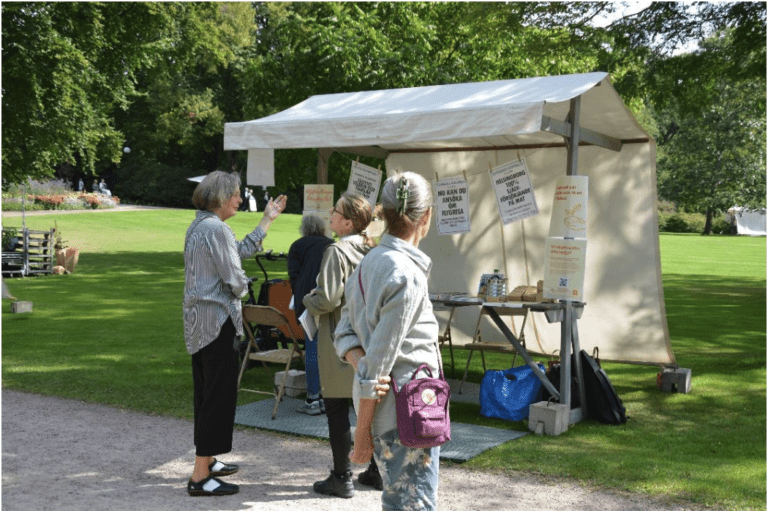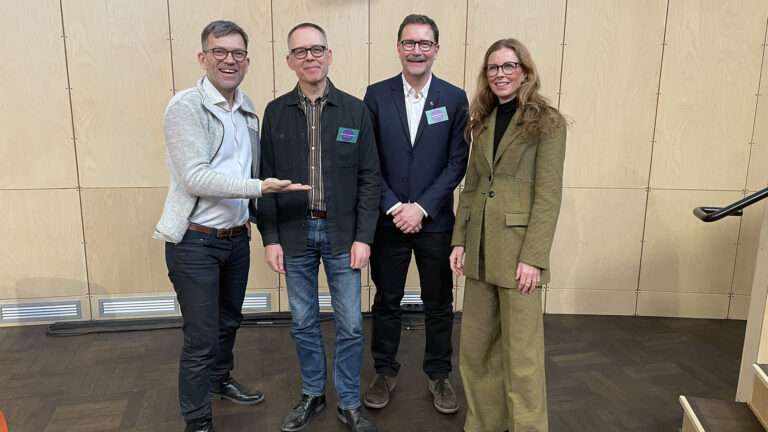Digital tools can be used in many different ways to accelerate the climate transition. During Transition Lab Forum 4, a workshop entitled "Digital tools for transition in practical climate work" was held to provide an insight into what tools exist, how they can be used and why.
In addition to group discussions, several experts in the field shared their experiences. Here we provide an overview of what was discussed with links to the presentations and videos.
You can also watch the workshop presentations on the Viable Cities Youtube channel
Working with open data and digital tools in the city of Gothenburg
Kim Lantto from the City of Gothenburg began by talking about Gothenburg's work with digital tools and open data. However, a prerequisite is that data is available even across municipal boundaries and with more transparency, trust can increase. How can we find good digital solutions that already exist and share them with other cities? And a final message from Kim: Always start from the needs of the citizens and co-create the services offered.
-
More about open data: goteborg.se/psidata
-
Tips for Gothenburg's open data portal: dataportalväst.se
-
Another tip for open data in Sundsvall: data.sundsvall.se
-
More about IRIS here: IRIS - Smart Cities
-
Conference tips: Internet Days November 23-24, 2020
-
Kim Lantto's slide presentation (PDF)
Digital twin of the City of Gothenburg
How can digital tools be used for the visualization of climate impact data for better decision-making in the work on climate change in cities? We got acquainted with the City of Gothenburg's ongoing work to develop a Digital Twin where Eric Jeansson, geodata strategist at the City of Gothenburg's urban planning office, inspired with visualizations of Gothenburg.
-
See visualization in the digital twin: The cloudburst that could change Gothenburg
-
Read more and watch Eric Jeansson talk about Gothenburg's work with a digital twin here:
-
What is a digital twin? - Urban development in Gothenburg - City of Gothenburg
-
Join us on a virtual study visit to Gothenburg's Digital Twin
Visualizing climate change mitigation
Energy and climate advisor Erik Eklund from Umeå Municipality talked about how the municipality is exploring visualization tools to support the climate transition. They want to use visualization as a city to plan, understand and concretize the changes that are necessary to address the climate crisis. During 2020, Umeå and Uppsala municipalities have worked with the company ClimateView within Viable Cities to develop a proof of concept for cities based on Panorama, a tool for visualizing Sweden's national climate policy. Panorama has been developed by the Climate Policy Council in collaboration with ClimateView and several other actors.
-
See a visualization of Sweden's climate transition: Panorama
-
Viable Cities climate breakfast 14 Oct with focus on visualization of climate transition
-
Erik Eklund's slide presentation from Nov 6 (PDF)
Computer games involve citizens in urban development
How can digital tools be used to involve citizens in decision-making on how the city should be designed? Pontus Westerberg, Innovation Program Manager at UN-Habitat, talked about Block-by-Block. Originally, the concept, then called Mina kvarter, started in Sweden where Svensk Byggtjänst wanted tools to involve young people in the development of Swedish suburbs. UN-Habitat launched the Block-by-Block initiative in 2012, using the computer game Minecraft to involve children and young people in the planning of cities and neighborhoods. So far, this has been done in more than 120 projects in more than 40 countries, including Sweden.
-
Read more here: A Mojang, Microsoft, and UN-Habitat Collaboration
-
An introduction to Block by Block: An introduction to Block by Block
-
About Block by Block's work in Kosovo: BLOCK BY BLOCK: Kosovo
Minecraft for inclusive urban planning in Gothenburg, Sweden
The City of Gothenburg also works with Minecraft for inclusive urban planning. Anna Reuter Metelius, project manager at the city's planning department, spoke about the work with young people in the districts of Hammarkullen and Bergsjön. The work is part of the Jämlikt Göteborg initiative, which aims to plan and build the city for greater equality.
-
See what the young people themselves say (SVT): Young people get to visit the future of Bergsjön - in Minecraft
-
Read more about Minecraft in Bergsjön - Urban development Gothenburg - City of Gothenburg
-
Anna Reuter Metelius slide presentation from 6 November (PDF)
-
Movie about Minecraft (without sound)
Participating experts
-
Kim Lantto, Development Manager Digital Service, City of Gothenburg
-
Eric Jeansson, City Planning Office, City of Gothenburg.
-
Erik Eklund, Energy and climate advisor at Umeå municipality.
-
Pontus Westerberg, Innovation Program Manager at UN-Habitat
-
Anna Reuter Metelius, Project Manager at the Planning Department, City of Gothenburg.
-
Eva Pavic, Project Coordinator, Johanneberg Science Park, City of Gothenburg.




